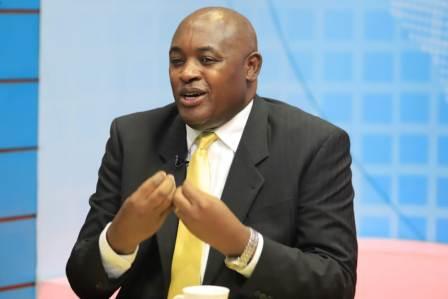
Over the years, many agencies were created, and it was realized that there were two parallel structures in the civil services main stream: ministries and also agencies that caused disparities in terms of payments where some roles were duplicated.
The Minister for Information Communication Technology and National Guidance (ICT&NG), Dr. Chris Baryomunsi, on Monday, October 28, 2024, while appearing on a local television, said that in 2018, the government started discussing rationalization in cabinet, where they asked the Ministry of Public Service to undertake a study to assess over 100 agencies to look at their mandates, objectives, functions, and a detailed, comprehensive discussion of all these agencies.
Baryomunsi said that the Uganda Coffee Development Authority (UCDA) is one of the agencies that was given the thought that it should be taken back to its original ministry.
According to the minister, the agencies will function in the same way, just a shift of departments, which is an administrative arrangement.
“The public needs to know that rationalization is not retrenching staff; however, it’s a shift of an agency back to its original ministry, where it was split. UCDA, therefore, should be a unit at the ministry where it was before and continue to carry out its functions normally,” Baryomunsi said.
He highlighted that the government took a decision, which decision has been taken to parliament for debate.
“There are arguments that some of my colleagues at parliament are putting across that are not evidence-based, only anticipations, fears, and speculations because, What does UCDA do to coffee lost?” Baryomunsi noted.
Baryomunsi added that the government proposed to put up structures and interventions to add value to coffee that is standing now, where the government discouraged selling raw coffee but instead process it in Uganda in order to add value, which will create employment.
“I don’t think there is anybody who opposes it; the question would be who gets this Pinetti that can be discussed; therefore, we should as much as possible avoid exporting raw coffee,” he said.
According to Baryomunsi, the opposition MPs have not explained justification on how UCDA will die after it is taken back to the Ministry of Agriculture.
“We are just shifting the Uganda Coffee Development Authority back to the ministry, not anywhere as purported,” Baryomunsi highlighted.
He further noted that during a debate in parliament, one of the members wanted to bring growing coffee as a Buganda issue since it’s a significant crop grown in Buganda; however, it’s a crop grown everywhere in the country.
“For real, coffee is a crop grown everywhere, including my area of Kinkizi, Bugisu, and as a country we are promoting the growing of coffee in northern Uganda; therefore, you cannot say it’s a Buganda issue,” Baryomunsi noted.
Read Also: Scrapping UCDA is a Punishment against Baganda-PM Mayiga to Among
Additionally, what the Buganda Katikiro wrote: “Touching coffee is touching Buganda,” which is a misguided comment, according to Baryomunsi.
The aftermath of the parliamentary debate triggered a reportedly doctored video about Speaker Anita Among saying, “Make sure the Baganda do not get numbers,” a video which some government officials and some members of the public dismissed, claiming that it was tempered with to milk a debate.
The government of Uganda is well conversant that coffee is a critical part of the economy, and its importance is growing with over 1.8 million households growing coffee, which contributes nearly a third of the country’s export earnings, paying for critical infrastructure like roads, hospitals, and schools.














